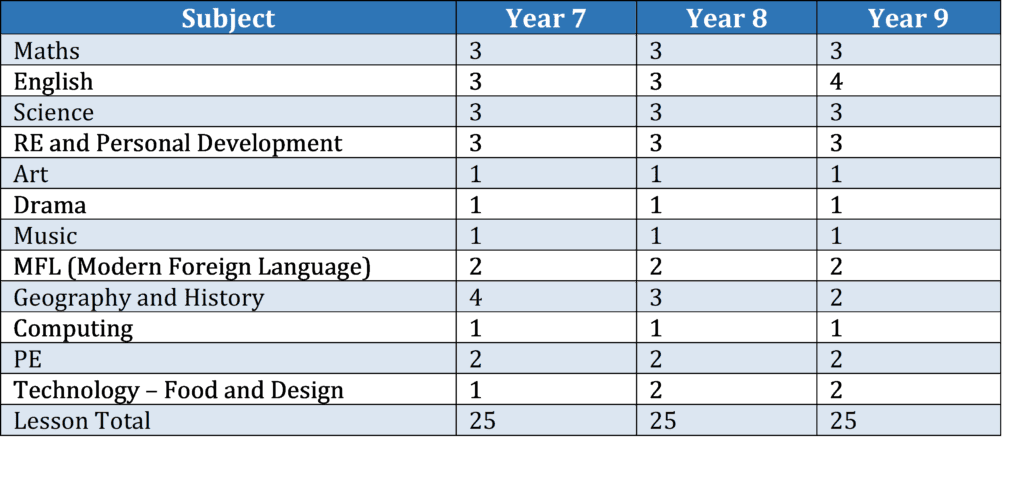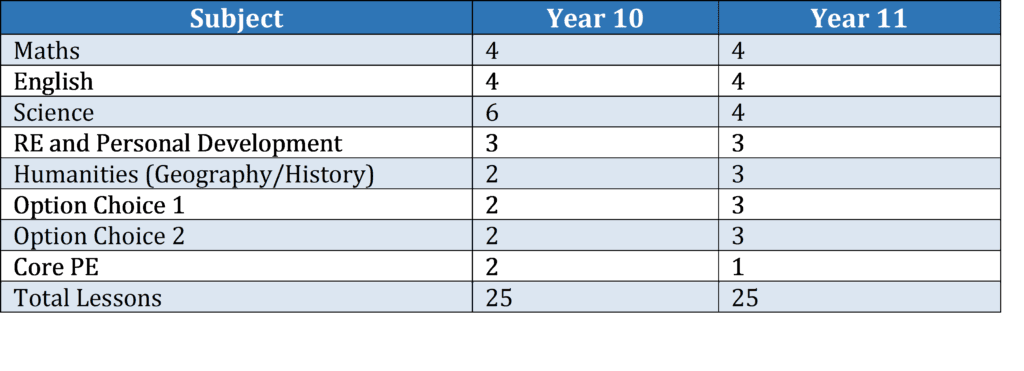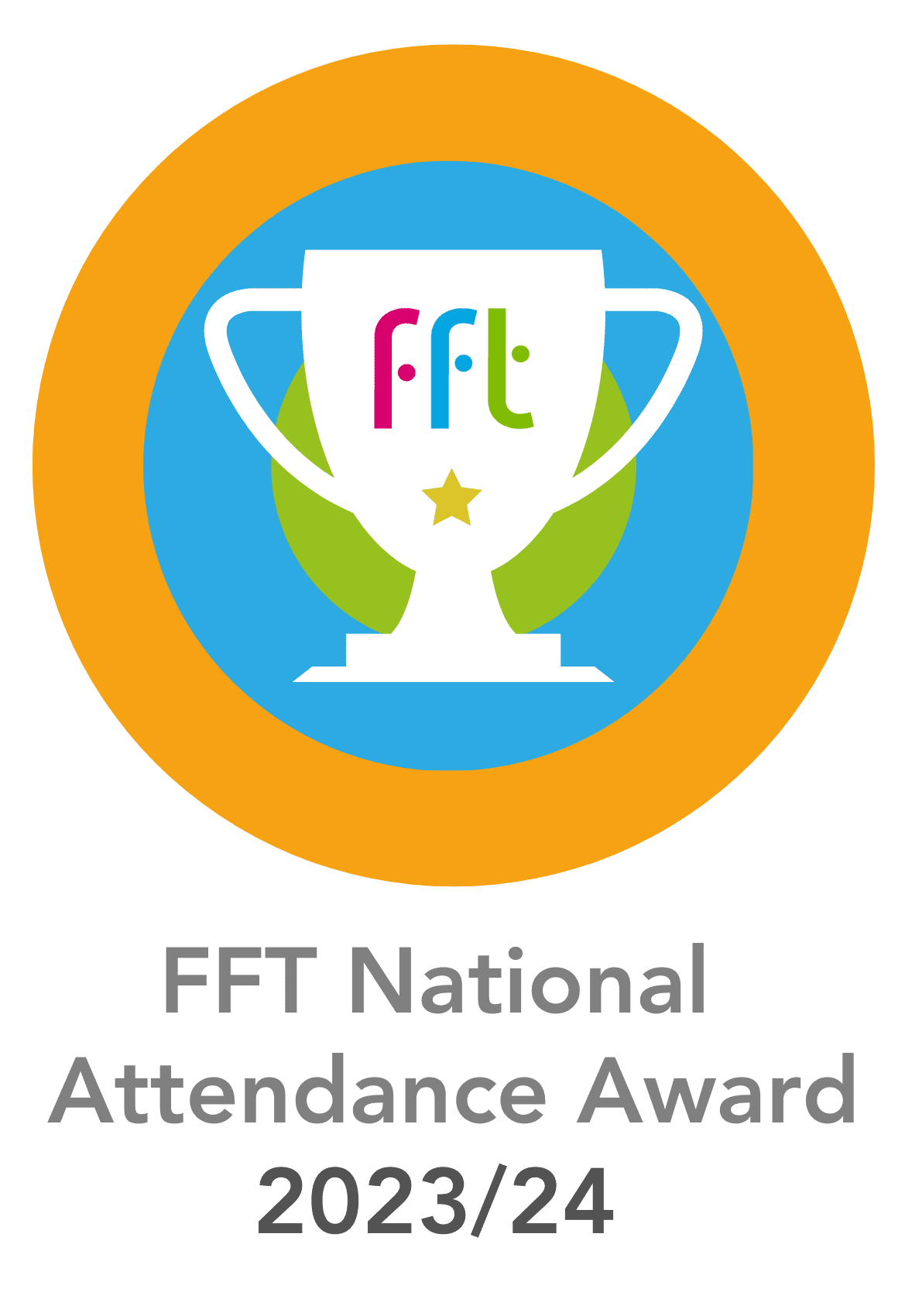Curriculum structure KS3 and KS4 including Options
At The Becket School, we believe every child deserves an ambitious, broad and balanced curriculum that nurtures their talents, challenges them to achieve their best, and prepares them to flourish in the future. From Key Stage 3 (Year 7–9) through to Key Stage 4 (Year 10–11), our curriculum is designed to open doors and inspire all learners.
We are proud of our long-standing commitment to academic excellence, with a strong emphasis on the English Baccalaureate (EBacc) subjects. This means that most students study Mathematics, English Language and Literature, Science, a humanities subject (History or Geography), and a Modern Foreign Language (French or German) through to Year 11.
While we strongly encourage the study of a language, we also recognise that every student is unique. We therefore support families in making the choices that are right for the individual, ensuring that all learners follow a pathway that both challenges and empowers them.
The EBacc is not a qualification in itself – it is a combination of subjects, including a language, that together provide a powerful foundation of knowledge, skills, and opportunities for the future.
Beyond the EBacc, we place great value on the arts, technology, and music as vital parts of a rich and rounded education. All students are given the opportunity to experience a wide range of these subjects in Years 7–9, and they can choose to pursue them further as part of their GCSE options.
We are proud that our curriculum reflects both our high aspirations and our Catholic ethos – developing not only academic excellence, but also creativity, faith, resilience, and a love of learning that lasts a lifetime.
Below you will find a general outline of our curriculum structure for each year group and their timetable allocation.
Years 7–9 Curriculum Overview
At our school, we believe every child is called to live life to the full (John 10:10). Our curriculum is designed to help students grow academically, personally and spiritually while building the skills and knowledge they need for the future.
In Year 7, students study a broad range of subjects, including two languages. Around February, they choose to focus on either German or French. This gives them more time to develop strong skills and foundational knowledge in one language, preparing them for their GCSE studies.
In Year 8, students continue with a broad and balanced curriculum. The table below shows how lessons are allocated across the week (25 periods). At the end of Year 8, students choose whether they wish to continue studying History or Geography into Year 9.
Year 9 acts as a bridge between Key Stage 3 and Key Stage 4. The curriculum focuses on building the knowledge, skills and confidence students need to succeed at GCSE. At the end of Year 9, students choose their final GCSE options, selecting from subjects including Art, Computer Science, Drama, Music, Food and Nutrition, Design Technology, and PE. Some subjects adapt their curriculum in Year 9 to begin preparing students for GCSE study.
The tables below show the lesson allocation for Years 8 and 9, giving parents a clear view of how students’ learning time is structured.
Through this carefully planned curriculum, we aim to support every student to grow, flourish, and live life to the full, in line with our Catholic ethos.

Key Stage 4 Curriculum (Years 10–11)
In Years 10 and 11, students focus on their GCSE studies, building on the knowledge, skills, and foundations developed in earlier years. Most students complete 9 or 10 GCSEs, giving them both breadth and depth in their learning while preparing them for future study and life beyond school.
All students study the core subjects:
- Mathematics
- English Language
- English Literature
- Science – either Combined Science (worth 2 GCSEs) or Triple Science (worth 3 GCSEs)
- Religious Education
In addition, all students study one Humanities GCSE, chosen at the end of Year 8:
- Geography or
- History
Students then choose two further GCSEs from a range of options, including:
- French
- German
- Art
- Drama
- Computer Science
- Physical Education
- Music
- Design Technology
- Food and Nutrition
This pathway is followed by the majority of students.
Additional Opportunities and Bespoke Pathways
For a small number of invited students, we also offer vocational courses:
- Child Development
- Information Technology
In some cases, we provide bespoke curriculum pathways, tailored carefully to meet the needs of individual students or cohorts. These may include a reduced number of GCSEs alongside a greater focus on vocational learning, ensuring every student can succeed and thrive.
The table below shows the lesson allocation for Years 10 and 11, giving parents a clear overview of how learning time is structured.
Through this carefully planned curriculum, we aim to support every student to grow, flourish, and live life to the full, following our Catholic ethos and the promise of John 10:10.







